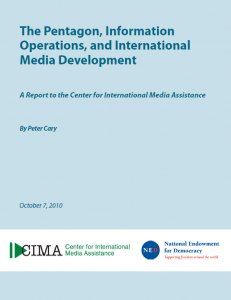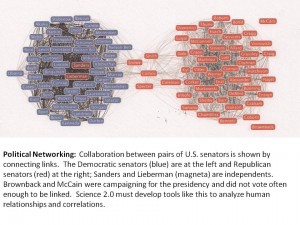** ODNI ISSUES NEW SECURITY STANDARDS FOR INTEL FACILITIES
** INFORMATION SHARING: FEAST OR FAMINE
** POLYGRAPH TESTING AGAINST BORDER CORRUPTION
Phi Beta Iota: As long as the IC persists in sticking with the TS/SCI “all or nothing” approach to information, it will continue to fail in serving the needs of virtually all of the current and all of the unrecognized but potentially legitimate customers for its proven sources and methods. The Open Source Agency under diplomatic auspices, that includes both the 50 community intelligence networks managed by the National Guard as well as the Multinational Decision Support Centre with regional multinational Stations, are necessary first steps if intelligence is to be useful into the future.
Regarding the polygraph, it works and has been hugely successful within the International Commission Against Impunity in Guatemala (CICIG) and within the Government of Guatemala itself, with two major caveats: 1) polygraph results must be reported directly to the leadership by the polygraphers, we have seen polygraphs manipulated or fabricated by security managers intent on achieving specific personnel or political or budget goals; and 2) out of area polygraphers are essential–in Central America, and we suspect in the Southwest border region as well, most local polygraphers have been employed by and well compensated by and are deathly afraid of, the narco-traffickers who know how to use the polygraph to keep their own ranks free of penetrations and betrayal from within. A global cadre of polygraphers under deep cover is needed.





